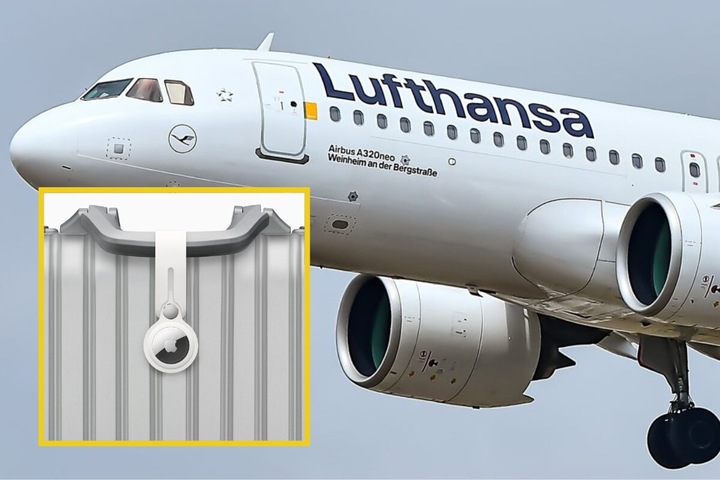Lufthansa Bans Apple AirTags on Flights
Lufthansa is the latest airline to prohibit the use of Apple AirTags on its flights. The German airline stated, in a statement, that it is aware of the new accessory and that it is not permitted to be used on flights due to a high risk of meddling with aircraft navigation and also the communication systems.

According to the statement, Lufthansa is currently updating its in-flight safety video to reflect the new policy. Other airlines, including Delta and American, have also prohibited the use of AirTags on their flights.
Lufthansa announced over the weekend that it is prohibiting Apple AirTags from checked bags only to attribute the policy to the ICAO (International Civil Aviation Organization).
The German airline replied to a request to address reports on Lufthansa’s ban on AirTags from checked luggage in a statement posted to its Twitter account.
“Lufthansa is banning activated AirTags from luggage as they are classified as dangerous and need to be turned off,” the airline said on Saturday. “According to ICAO guidelines, baggage trackers are subject to the dangerous goods regulations. Furthermore, due to their transmission function, the trackers must be deactivated during the flight if they are in checked baggage and cannot be used as a result”, it explained.
Source: theregister.com
The policy appears to be unpopular among tourists who have been using Apple AirTags to track checked bags because air carriers misdirect or lose bags regularly.
Travelers speculate that Lufthansa implemented this policy to avoid being shamed by passengers whose bags were lost on social media. Lufthansa did not respond to multiple phone calls and emails seeking comment on the policy’s rationale if it will be enforced, and how.
Lufthansa stated in a report that Apple AirTags are small, coin-sized devices that can be attached to items such as keys and wallets to help them stay organized. The devices communicate with Apple devices via Bluetooth and can be used to track down misplaced items. While AirTags are not intended for use on aircraft, they do emit radio signals that may interfere with aircraft navigation and communication systems. As a result, many airlines have decided to prohibit the use of AirTags on their flights.
IATA and the ICAO did not respond immediately to requests for comment, and Apple did not reply to a request for comment either.
The combustion of lithium-ion batteries in aircraft baggage holds has resulted in restrictions on the types of electronic devices that can be carried in aircraft cabins and baggage holds over the last decade.
Apple AirTags, on the other hand, rely on tiny lithium-metal batteries, specifically model CR2032. They have an energy density of 198 milliwatt hours per gramme and a lithium content of 0.109 grammes (about 0.0038 oz.). As a result, they are permitted in checked bags in the United States under FAA regulations.
AirTags appear to be permitted under International Air Transport Association (IATA) rules, which are based on ICAO recommendations. According to the IATA rule, approval is not required for lithium metal batteries with a lithium content of two grams or less, so AirTags are permitted.
Separate Lufthansa guidelines state that checked bags may contain devices with integral, removable batteries with up to 0.3 g of lithium, indicating that AirTags should be permitted.
Specific IATA guidance for “smart” baggage features, such as GPS trackers, requires, “The portable electronic device must be designed with at least two independent means to turn off completely, turn off cellular or mobile functions, or a combination of both when airborne.”
Source: theregister.com
Since AirTags lack an on-device or remote off switch, this may be where Apple’s GPS trackers breach the rules. To turn it off, the battery must be removed, or it will run out of power.
It’s unclear whether or not Lufthansa intends to enforce this policy. Removing bags with AirTags from flights will certainly generate negative feedback from customers.

I am a student pursuing my bachelor’s in information technology. I have a interest in writing so, I am working a freelance content writer because I enjoy writing. I also write poetries. I believe in the quote by anne frank “paper has more patience than person